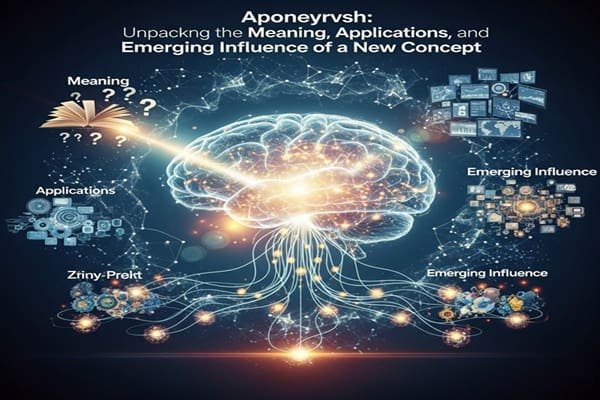Amanda Bennitt Wallace and TSC: A Quiet Force at the Edge of Technology and Public Policy

If you haven’t heard of Amanda Bennitt Wallace, that’s by design. She’s not one to seek the spotlight — yet her influence quietly shapes how governments and organizations handle artificial intelligence, data ethics, and digital policy worldwide.
Wallace is the founding director of TSC (Technology & Society Collaborative), a nonpartisan institute focused on making sure technology evolves responsibly. Under her guidance, TSC has become one of the most respected — yet understated — think tanks influencing global tech governance.
Born and raised in Des Moines, Iowa, Wallace was inspired early by her parents — a public school administrator and an architect — who taught her how systems, both social and structural, shape people’s lives. That sense of structure would later become the foundation for her approach to public technology policy.
After studying political science and urban planning at the University of Chicago, she went on to earn dual master’s degrees in public policy and information science from UC Berkeley. Her early career included roles with municipal innovation labs and the U.S. Digital Service, where she tackled issues like algorithmic accountability.
By 2015, Wallace saw the growing disconnect between how fast technology was advancing and how slowly civic regulation caught up. Her solution? Build a space where those two worlds could meet — and TSC was born.
What Exactly Is TSC?
The Technology & Society Collaborative (TSC) is not your typical think tank. Based in Washington, D.C., with teams in Toronto, Berlin, and Nairobi, it functions more like a design lab for digital policy.
TSC helps governments, educators, and even tech companies anticipate and address the social impact of new technologies — from artificial intelligence to data privacy and digital equity.
Instead of just writing reports, TSC builds ready-to-use frameworks and pilot programs that can be adapted by public institutions.
Here’s a quick look at TSC’s main areas of focus:
| Domain | Example Initiatives |
|---|---|
| Algorithmic Accountability | Risk audits for AI systems used in policing and welfare |
| Civic Data Trusts | Designing frameworks for community-owned data |
| Digital Infrastructure Equity | Broadband policy templates for underserved areas |
| Autonomous Systems Regulation | Liability models for drones and driverless cars |
| AI & Labor Transformation | Tools for forecasting job displacement and retraining |
Wallace calls TSC’s approach “constructive neutrality” — meaning it doesn’t push one political agenda. Instead, it gives policymakers the tools they need to act responsibly.
The TSC Model: Quiet, Precise, and Pragmatic
Amanda Bennitt Wallace often compares technology policy to urban planning. You wouldn’t wait for a building to collapse before drafting zoning laws — so why should we wait for a data crisis to create tech regulation?
TSC operates through a three-step process:
-
Scenario Forecasting – Using simulations and real-world data to predict how emerging technologies will shape society over the next 5–15 years.
-
Modular Policy Drafting – Creating policy kits that include draft legislation, implementation guides, and case studies tailored to local needs.
-
Collaborative Pilot Projects – Partnering with governments or NGOs to test these frameworks in real communities — whether it’s drone management or ethical AI use.
This approach ensures that TSC’s work is practical, data-driven, and adaptable, not just theoretical.
Major Contributions Under Wallace’s Leadership
Under Amanda Bennitt Wallace, TSC has rolled out several groundbreaking initiatives. Here are a few that have made headlines (even if quietly):
| Initiative | Description | Impact |
|---|---|---|
| Project Vector | Municipal drone zoning policies | Adopted in 17 cities, including Austin and Helsinki |
| CivicCompute | AI transparency dashboard for public agencies | Used in education and healthcare sectors |
| Data Commons Toolkit | Framework for ethical public data collaboration | Referenced in EU Data Governance Act drafts |
| Machine Accountability Index | Bias-measuring tool for algorithms | Piloted in New York, Berlin, Johannesburg |
| TrustShield | Privacy audit templates for biometric systems | Used by humanitarian organizations globally |
These projects show TSC’s belief that policy should be functional, measurable, and humane.
Leadership Style: Calm, Methodical, and Visionary
Unlike many public figures in tech policy, Wallace prefers results over recognition. She avoids social media and rarely speaks at flashy conferences. When she does, it’s usually at venues like the UN AI Governance Assembly or OECD Digital Futures Roundtable.
Her colleagues describe her as “obsessively systems-minded” — someone who approaches complex problems like puzzles that can always be improved. She’s also known for holding weekly risk roundtables, where every TSC member must flag one overlooked ethical concern in current projects.
Her guiding principle? “Slow governance.” She believes policymaking should favor long-term stability over short-term political wins.
Policy Philosophy: Beyond Regulation
Amanda Bennitt Wallace’s work isn’t about restricting innovation — it’s about designing ethical systems where innovation and justice coexist.
She’s especially focused on reparative design, which means rethinking technologies that have already caused harm. For example, TSC recently collaborated with Indigenous tribal nations to help create digital sovereignty protocols — frameworks allowing communities to control their own data systems.
As Wallace once said:
“If technology shapes our collective memory and behavior, those excluded from shaping its architecture are being written out of the future.”
That philosophy lies at the heart of TSC’s work.
Challenges and Criticism
Of course, not everyone agrees with TSC’s methods.
Some critics say TSC’s neutral stance makes it too accommodating to powerful tech companies. Others argue that its incremental approach doesn’t go far enough in addressing urgent ethical crises.
There are also internal debates about growth. As TSC expands globally, some staff worry that it might drift toward consultancy rather than staying a mission-driven nonprofit.
Wallace acknowledges these challenges but remains firm in her principles — especially her refusal to take funding from corporations tied to surveillance, military AI, or exploitative data practices.
Also Read : OntPress.com: Exploring Digital Publishing and Content Creation
Global Reach and Influence
Despite its quiet nature, TSC has left fingerprints on major policy efforts worldwide. Its frameworks have influenced:
-
Brazil’s LGPD amendment debates
-
The African Union’s Digital Transformation Strategy
-
Canada’s AI and Data Act planning
-
U.S. Office of Science and Technology Policy initiatives
TSC also runs international policy design labs, helping countries in the Global South create localized, culturally aware tech governance frameworks.
For Wallace, this is about decolonizing digital policy — making sure every nation has a voice in how technology is governed, not just those with the most resources.
What’s Next for TSC?
Looking ahead, Wallace is steering TSC into some of the most urgent issues of the next decade.
Here are the organization’s 2025–2027 focus areas:
| Focus Area | Objective |
|---|---|
| Algorithmic Climate Risk | Forecasting tools for AI-driven climate solutions |
| AI & Disability Rights | Accessibility standards for public AI systems |
| Civic Tech Funding | Open funding models for noncommercial digital tools |
| Local Governance Labs | Community tech workshops in 10 underserved cities |
TSC’s next big global effort is the Equitable AI Blueprint — an initiative to develop auditable, inclusive standards for AI in education, healthcare, and legal systems.
Final Thoughts
Amanda Bennitt Wallace may never trend on social media, but her impact runs deep. She has turned TSC into a model for how governments, technologists, and communities can work together to build a fairer digital future.
In a world obsessed with disruption, she’s chosen construction — building systems that last, policies that adapt, and frameworks that empower.
Wallace doesn’t just resist the dystopian side of technology — she designs the architecture of hope.
FAQs
1. Who is Amanda Bennitt Wallace?
She’s the founder of TSC (Technology & Society Collaborative), a global nonprofit designing ethical frameworks for emerging technologies.
2. What does TSC do?
TSC develops real-world, ready-to-implement policies and pilot programs to help governments regulate AI, data, and digital infrastructure.
3. How is TSC different from other policy groups?
Unlike research-only institutes, TSC focuses on implementation, creating modular frameworks that can be tested and scaled.
4. What are TSC’s major projects?
Key initiatives include Project Vector, CivicCompute, and the Data Commons Toolkit, which have influenced laws and pilot programs globally.
5. How can organizations work with TSC?
Governments, NGOs, and educational institutions can collaborate through co-design labs, pilot programs, and training initiatives led by TSC experts.
AI governance Amanda Bennitt Wallace digital transformation Ethical Tech future of AI Public Policy Tech Ethics tech innovation Technology Policy TSC
Last modified: October 9, 2025




